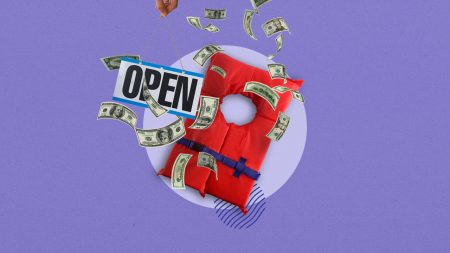Key takeaways
- Due to the risk to lenders, unsecured small business loans can be harder to get
- Unsecured small business loans tend to have higher interest rates than secured loans
- Exploring alternatives to unsecured business loans ensures you find the right funding for your business
An unsecured business loan is any loan that doesn’t require collateral. These loans can be faster than secured business loans because you don’t have to wait to appraise an asset.
Some unsecured small business loans are harder to get since a lender takes on more risk with this type of loan. These loans also tend to have higher interest rates to help account for that risk. Before deciding on an unsecured business loan, check out these alternatives to see if one fits your business better.
Secured business loans
A secured business loan requires you to provide personal or business collateral, which is one or more assets you own that help secure the loan. Types of collateral include real estate, vehicles, business equipment, inventory and invoices.
If you are unable to pay off your secured loan, the lender has a legal claim to your assets and can seize them and sell them to recover the funds it loaned to you.
Many lenders also require a personal guarantee — a legal promise making business owners personally responsible for their business debt. If you stop making payments, lenders can take you to court and try to seize your personal assets.
Since secured loans are less risky than unsecured loans, interest rates and loan fees tend to be more favorable. Below are some main secured loan types and alternative business funding options, along with the advantages and disadvantages of each.
Secured term loans
Secured term loans provide a lump sum of cash you repay with interest over time. This flexible type of loan works best for large purchases or investments where you know the costs.
Secured loan interest rates can be lower than other business loan types, and repayment terms can be seven years or longer. But with a secured term loan, you’ll be required to make the full payment, even if you didn’t use the entire loan amount but repaid part of the loan.
Plus, if you have bad credit, online lenders will work with you, but the rates and repayment terms are less favorable. Some lenders require you to make weekly payments and may only give you anywhere from 12 to 24 months to pay back the loan.
Bankrate insight
SBA loans
SBA loans are administered by lenders but backed by the U.S. Small Business Administration. A perk is that the SBA does not require collateral for SBA loans of $50,000 or less. But lenders can set their own terms and may still require collateral to minimize risk to themselves.
Most SBA loans over $50,000 require some form of collateral based on the lender’s non-SBA-guaranteed commercial loan policies. Examples of SBA collateral include real estate, inventory and equipment. SBA loans can also take 30 to 90 days to process, so you’ll need to be patient if you choose to apply for this loan.
Bankrate insight
Loans available through the SBA include:
Depending on the loan, businesses can access up to $5.5. million for various uses, including working capital, real estate, inventory and equipment.
Secured lines of credit
Business lines of credit are revolving forms of financing, similar to a business credit card. You can spend up to your credit limit and only get charged interest on the amount you use.
Lines of credit provide businesses with accessible capital for everyday business expenses. Going for a secured option also better protects personal assets. Because the loan is secured and poses a lower risk to the lender, business owners with bad credit can qualify with some lenders.
On the other hand, secured business lines of credit may have much lower credit limits than unsecured business loans or lines of credit. For example, some banks might limit a secured line of credit to $50,000.
Bankrate insight
Invoice financing
Invoice financing is where you borrow against your accounts receivable or invoices that have not been paid yet. The invoices themselves act as collateral in this loan type.
One of the main benefits of invoice financing is that it gets you fast cash if you can’t wait for a client to pay an invoice. But you will pay high fees to the financing company once the invoice gets paid, dipping into your profit from the accounts receivable. That’s why this is a short-term solution to cash flow problems.
Bankrate insight
Business grants
A business grant is a type of funding awarded to qualified businesses that you don’t have to pay back. There are typically no collateral requirements. Businesses, nonprofits and government agencies may offer grants throughout the year. Many tailor products to help underserved communities.
That said, grants are highly competitive among businesses since grants are essentially free money. You’ll also need to meet all the qualifications before applying, which may include specifics about your industry or where you’re located. For more information, check out the following guides:
Crowdfunding
Crowdfunding lets you raise capital in small amounts by seeking funds from large groups of people. You generate buzz around your business idea or product, and people elect to give money to your business idea. Crowdfunding often takes the form of donations and is usually performed through digital platforms.
Other types of crowdfunding, like equity funding, allow backers to get company shares in exchange for an investment. You may also consider giving rewards to investors, such as the product your business creates or giveaways.
The main drawback is that you’re not guaranteed to get the full amount you need or any funds at all. It can also take a long time to reach your goals.
Peer-to-peer (P2P) lending
Peer-to-peer lending is a fairly informal type of lending, so it does not typically have collateral. Like crowdfunding, this source of financing lets you skip traditional and online lenders. Instead, you use an online platform to solicit funds from people or businesses.
Peer-to-peer lending can offer fast funds to borrowers and is accessible to borrowers with less-than-perfect credit. But rates and fees can vary, so it may not be the most affordable option depending on your creditworthiness and the platform you use.
Bottom line
You have a variety of ways to fund your business, whether you go with an unsecured business loan or an alternative. Make sure to consider each one carefully before you decide. Finding the best small business loan is essential to your success as your business grows.
Frequently asked questions
-
Collateral and personal guarantees are ways to keep you accountable for paying back the loan. Collateral is an asset you offer up that a lender can claim if you don’t pay back the loan. So, if you used a piece of farm machinery as collateral, the lender would take that equipment as payment for the loan if you default. A personal guarantee is a legal promise that you will make good on the loan if you default on payments, even if it means having your personal assets seized.
-
Yes, many business loans require you to sign a personal guarantee. This is a way for the lender to ensure they won’t come away empty-handed if a borrower defaults on a loan.
-
Common types of collateral can include real estate, business equipment, inventory or investments such as stock or bonds. Some lenders will allow cash. Invoices commonly become collateral for invoice financing. You may also see a blanket lien option, which means the lender can seize whatever business assets it needs to repay the loan.
Read the full article here












